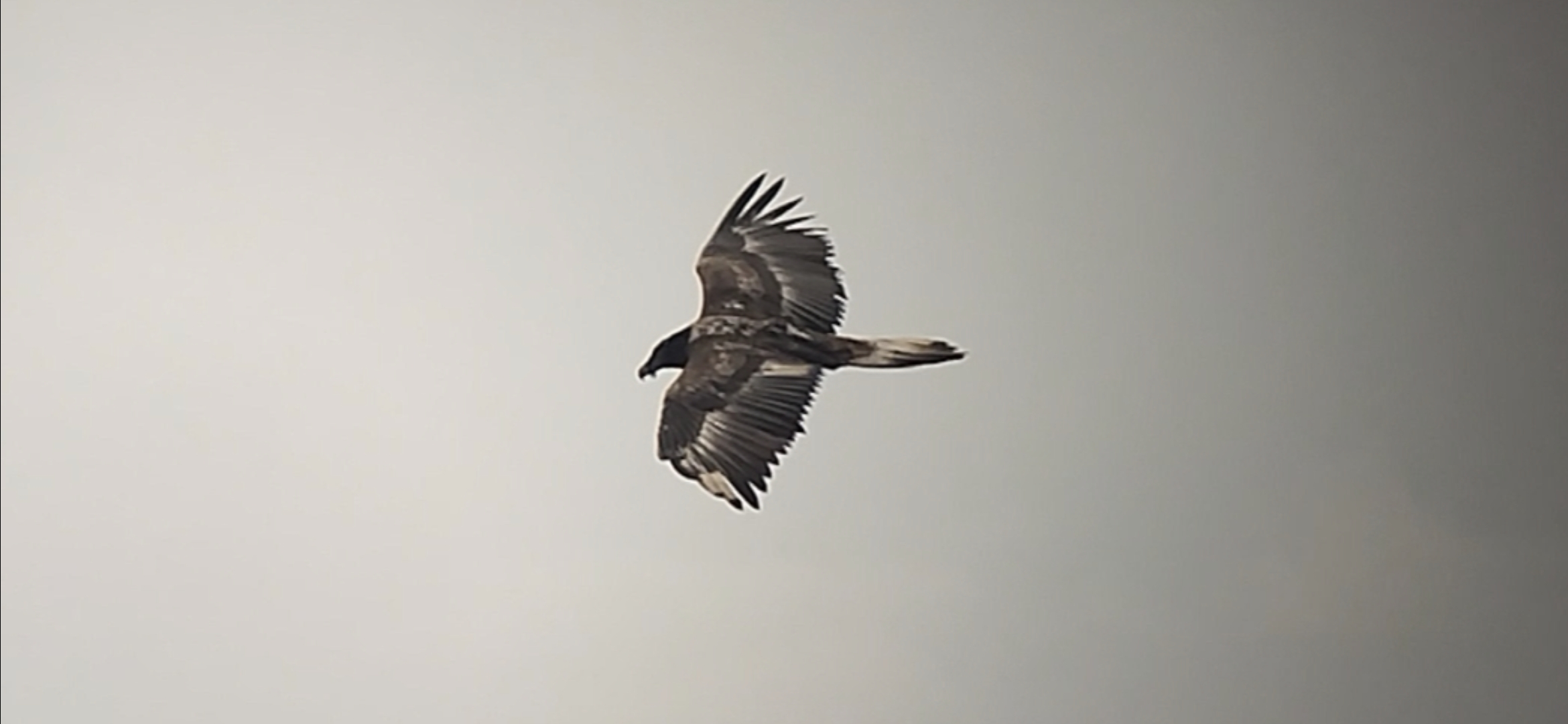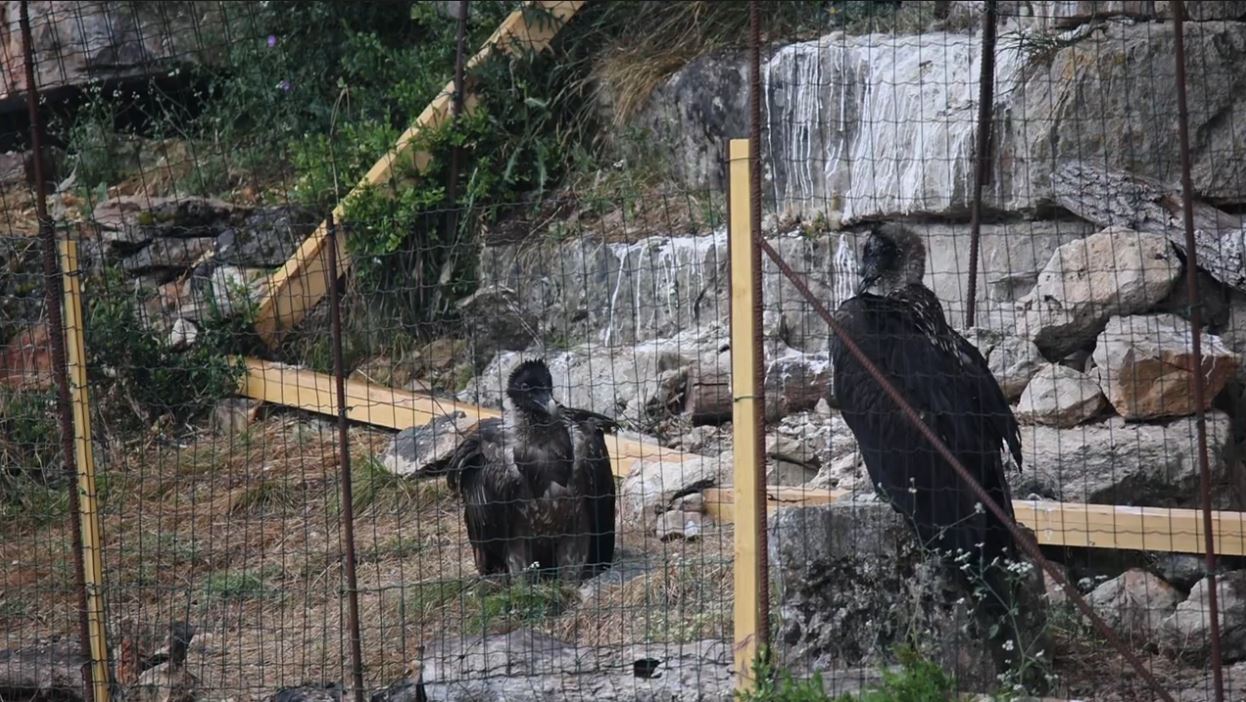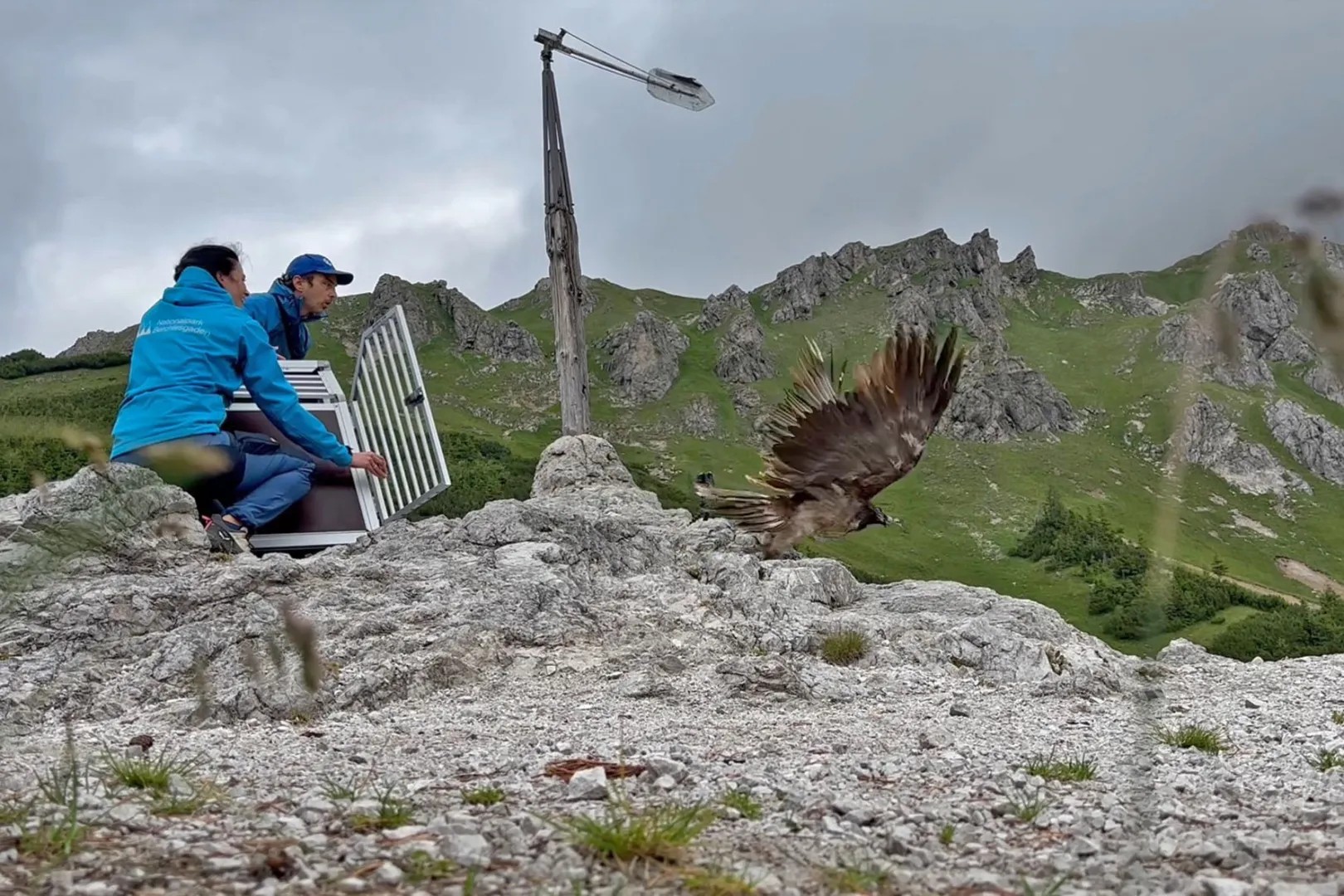The 14th young bearded vulture to be released this year in the three on-going reintroduction projects – Alps, Andalusia and Grands Causses, was set free this weekend in Sierra de Cazorla.
The female was named after a local municipality (Huesa), and is the 5th bearded vulture to be released in the Sierras de Cazorla, Castril, Segura & Las Villas this Spring to reinforce the reintroduced population, in a milestone year that marked first breeding in the wild in southern Spain!
Huesa was born in the Guadalentín specialized captive breeding centre, from the 2nd egg of a double clutch from a newly formed breeding pair. The egg was laid on the 30th of January, and Huesa hatched on the 24th of March in the incubator. On the 5th April the chick was adopted with success by a foster pair. Its sibling from the first egg has already been released in the Spanish sierras.
The mother of Huesa is a female born in 1999, and was first released in the Alpine reintroduction project the same year, in NP Hohe Tauern (Austria). A month after fledging she was injured (left leg broken) by the territorial female Nicola (released in Rauris in 1991). She was operated at the Vienna Veterinary University with success, and entered the captive breeding network. She first paired in 2007 and started to breed in 2009, but was aggressive to the males and thus in 2015 changed pair.
Huesa was presented to the public in the village with the same name last Friday (see photos), and then taken to the hacking platform high up in the mountains, where she will start their adaptation to the wild (see photos). As she is not yet at fledgling age Huesa will stay in the platform for a few weeks, starting to learn from the natural environment. She will be fed on a regular basis, but will then fledge naturally.
In a few weeks’ time she will be flying in the same skies as Tono & Blimunda, the adult pair that is breeding successfully this year in Andalucía, the first time the species breeds in southern Spain for more than 30 years – a fantastic milestone in a project that only started 9 years ago.
The VCF would like to thank the staff from Fundación Gypaetus and the Junta de Andalusia all the effort to organise this release, and their continued investment and commitment to the reintroduction project there.



